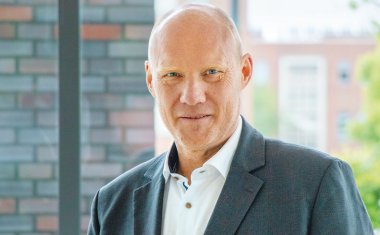“PRK” Type Retro-reflective Photoelectric Sensors
“Untouched since the ice age” is not a marketing slogan, but a fact – a real piece of the ice age that still exists today: When the ice melted, immense amounts of water drained away into the rock of the Swabian Alp mountains. The earth shifting in an unusual way then caused this reservoir to be sealed off approximately 400 meters below the outside world. Since then, heavy layers of impermeable stone have prevented rainwater from seeping through to the reservoir and have protected it from all the environmental influences of our time.
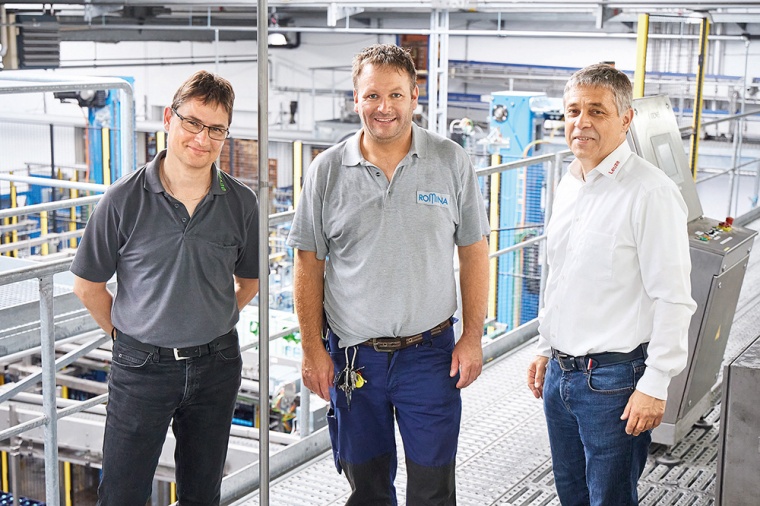
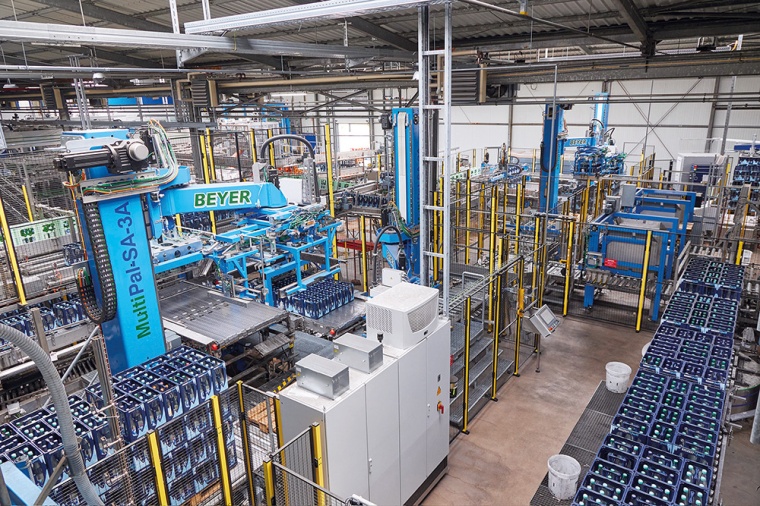
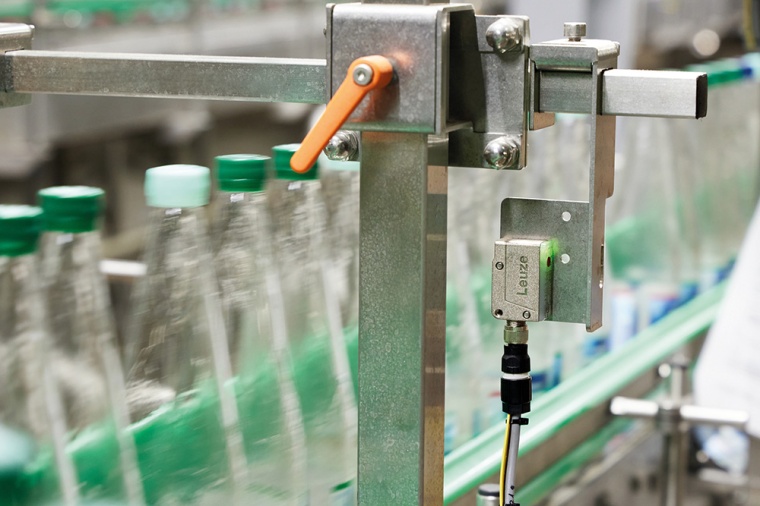
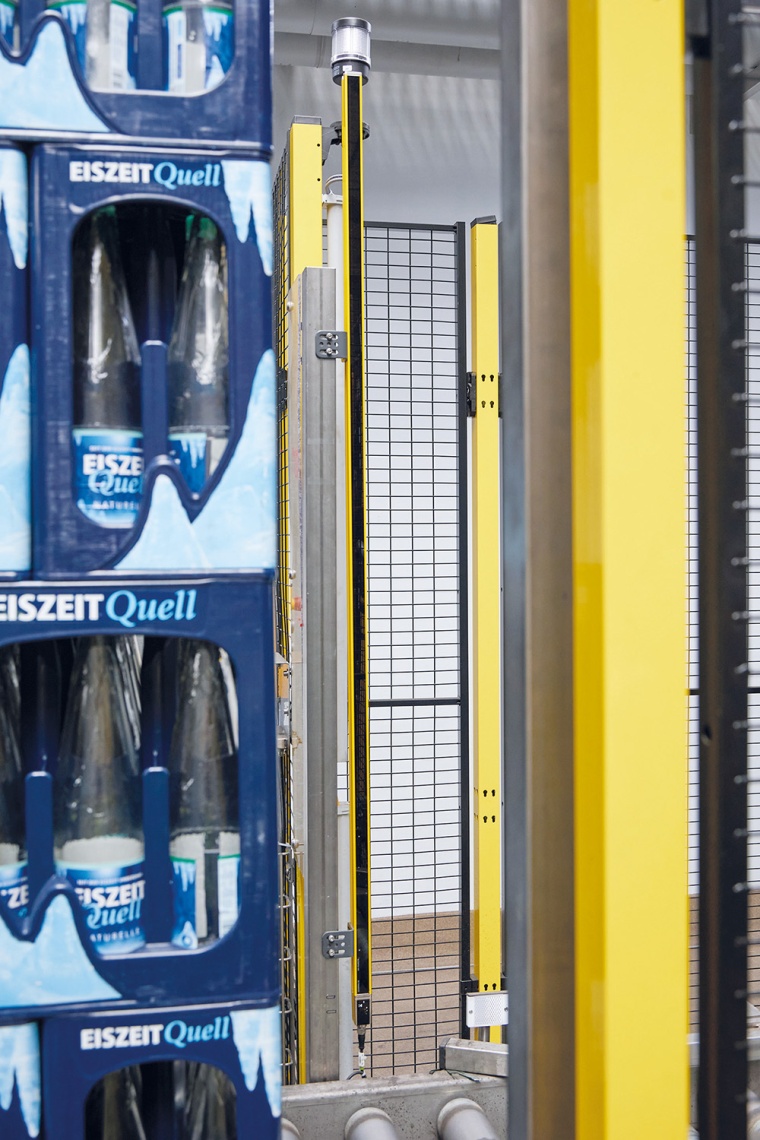
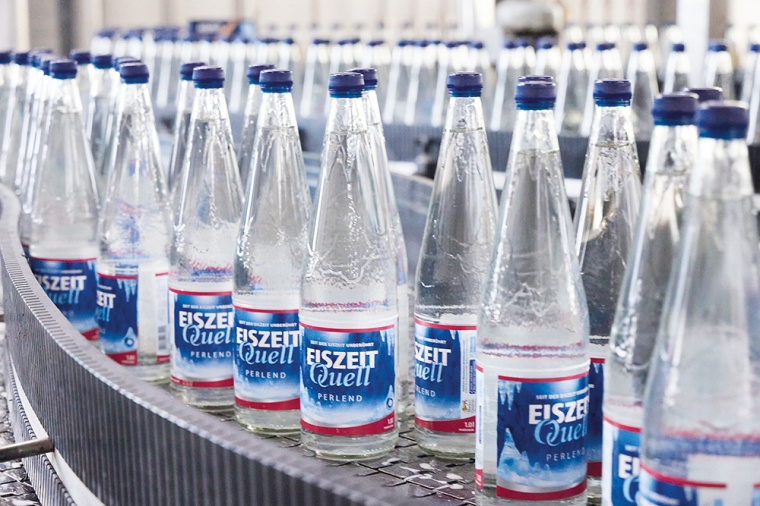
The mineral water deposit was discovered in the 1970s when deep drilling was undertaken near the site of Romina Mineralbrunnen in Reutlingen-Rommelsbach, Southern Germany. “This water has an exceptional quality and is a real gift from nature,” says Stefan Eberle, Head of Maintenance at Romina Mineralbrunnen, who knows just how valuable “his” water is: “This unique water quality is what spurs us on and is why we are committed to accepting only the highest standards across the complete filling process.”
In addition, Romina Mineralbrunnen undergoes regular internal and external quality controls that far exceed what is prescribed by law. This has enabled the company to receive International Featured Standard (IFS) Food certification and pass the test in the highest category, “Higher Level”. The criteria for the “Higher Level” category are considered the most stringent standard in the food industry.
Modernization and Expansion of the Glass and Palletizer System
EiszeitQuell is available in the varieties natural, lightly sparkling and sparkling, in large and small bottles made of glass and PET. “For some time now, the glass bottle, which has our icicle relief imprinted all around it, has been experiencing a real return to popularity,” explains Eberle. Therefore, Romina Mineralbrunnen invests continuously in the filling of its glass bottles and ensures that its production processes meet the most up-to-date technical and ecological standards. In 2020, Romina started to modernize its glass system. Over several building phases, the company put into operation its transport technology, packing and unpacking machines, crate washers, new-glass depalletizers and a brand-new palletizer system with a double palleti-zer and depalletizer. This new complete system has been hard at work packaging mineral water ever since.
Romina Mineralbrunnen chose Beyer Maschinenbau as its partner for this project. The experienced machine builder from Roßwein in Saxony, Eastern Germany, specializes in the planning, development and building of efficient conveyor and packaging systems for the food and beverage industry: Thanks to a high level of vertical integration, this family business, which is now being run by the fourth generation, is able to provide an all-round service. From the individual packaging machines to the complete system with transport technology for containers, unit packs and pallets. These systems are often supplemented by machines for sorting and checking containers and unit packs. Beyer Maschinenbau also meets all of the systems’ servicing needs with around 50 experienced technicians.
“When we entered into business with Romina Mineralbrunnen at the start of 2020, a glass system and a PET system were still standing side by side here,” says Till Beyer, CEO and owner of Beyer Maschinenbau. In May of last year, the PET system was relocated to another area in a building across the road. Then we were able to make a start on the expansion: First we modernized the new palletizer and depalletizer system with the complete pallet conveyor system. Next came the packing and unpacking machines and the complete crate transport system. These were followed by the crate washers and the complete bottle transport system right up to the bottle cleaning machine. Finally, a new depalletizer for new glass was installed. In the meantime, Romina modernized the building technology and the flooring, bringing them in line with a new industry standard. “The big challenge was coordinating and implementing all of the modifications with only very short breaks in production and in less than a year,” explains Beyer.
Nothing works without a Sensor System
At peak times at Romina Mineralbrunnen, up to 45,000 glass bottles per hour are conveyed through the system, depalletized, unpacked, cleaned, filled, repackaged and finally loaded onto a new pallet, secured in place and transported into storage. A high level of system availability is absolutely essential. Otherwise this level of peak operation simply could not be achieved.
“Nowadays, conveyor and packaging systems just don’t work without reliable sensor systems,” says Beyer. Therefore, for many years now he has relied on optical sensor systems and a particular, experienced partner: Sensor expert Leuze from Owen/Teck, Southern Germany – just a few kilometers away from Romina Mineralbrunnen. “As the Sensor People, we have many years of experience and in-depth application know-how relating to the packaging and beverage industry. Working together with our customers, we develop efficient sensor solutions that are precisely tailored to the requirements of this industry and that ensure our customers’ continued success in a constantly changing industry,” says Andreas Eberle, Local Industry Manager Packaging at Leuze. The sensor expert has a precise solution on hand for almost all applications in the beverage industry: For example, for transporting pallets, unit packs and containers. Leuze also always has the appropriate sensors for applications in individual machines.
Reliable Transportation of Unit Packs and Containers
One example of a Leuze sensor that is particularly suitable for use in the beverage industry is the PRK retro-reflective photoelectric sensor. This is an optically switching sensor that uses the reflection principle. “Even transparent or highly reflective materials such as glass bottles or plastic crates with glossy, multicolored decoration, like Romina’s EiszeitQuell crates, can be accurately and reliably detected by these sensors,” says Eberle.
Retro-reflective photoelectric sensors are available in various series, sizes and performance classes. The sensor principle offers a range of functionalities: When transporting unit packs, it detects the individual crates. For example, identifying whether they are being transported correctly or becoming backed up somewhere along the conveyor line. Alternatively, it detects protrusions if crates are too long or too tall. If the PRK is used in the machines themselves, the sensor is mostly used for product detection. On the set-down table, it monitors free spaces and prevents collisions when pallets are being unstacked.
Safe Material Flow with Access Guarding
Retro-reflective photoelectric sensors monitor the beginning and end of a pallet. Both when the empties are set down on the conveyor line and when the Euro-pallets are finally loaded with newly filled crates. Provided that the Euro-palettes were detected as flawless by an optical and mechanical checking device during transportation. The sensors also monitor the pallets to check that they stop in a particular position, and that they were actually transported at all. In this area, safety sensors are also required to ensure the safety of people and machines. For example, when loading and unloading pallets. Multiple light beam safety devices in the device column with integrated muting function are often used for this application. However, safety light curtains with the Smart Process Gating (SPG) technology patented by Leuze are also suitable. Using the version of safety light curtain that features SPG means that additional signal-emitting muting sensors are not required. This saves a lot of space and is a significant advantage when setting up in confined areas.
Fully Automated Material Flow: Reliable and Safe
End customer Romina Mineralbrunnen, machine builder Beyer Maschinenbau and sensor expert Leuze look back on their joint project with satisfaction. And they are all in agreement: reliable systems and fast customer service are essential in meeting the demand for mineral water, which is particularly high in the summer months.
Even greater efficiency and a glass bottle throughput of up to 45,000 bottles per hour is achieved thanks to the modern transport technology and the brand-new glass system from Beyer Maschinenbau. And the sensor systems from Leuze, just up the road in Owen/Teck. Because a fully automated material flow is only possible with reliable sensor systems. And these must be precise, but also safe.
Author: Martina Schili, Corporate Communications Manager at Leuze electronic GmbH & Co. KG
most read

Integrated and Futureproof: Traka’s Next Chapter
Interview with Stefni Oliver on Traka’s Vision for the Future


Training at Fraunhofer SIT: Strengthening resilience against cyber attacks
Knowledge in cyber security is evolving rapidly - continuous training is therefore important.

Is Your Venue Ready for Martyn’s Law?
Martyn’s Law demands stronger security by 2027. Is your venue prepared to protect and respond?

When the Internet stumbles: Why DNS is important
When DNS fails, the internet stumbles-AWS outage proves resilience and redundancy are vital for digital trust



